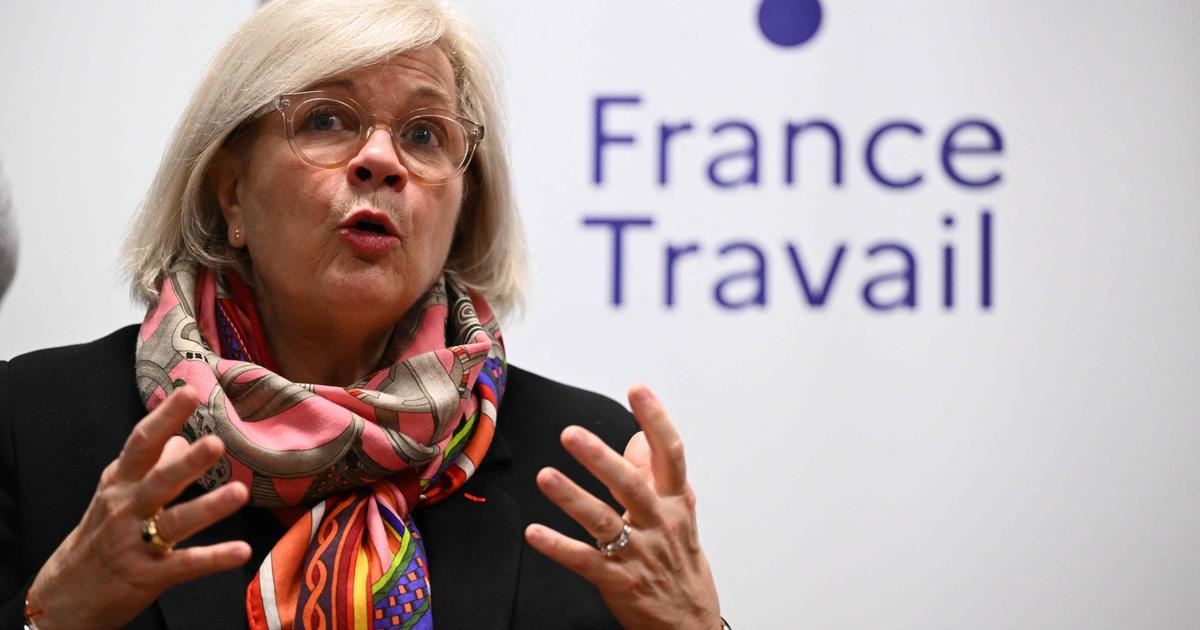Collateral damage to the crisis, Pôle emploi will be unable to meet its operating expenses in 2022. A hole of at least 400 million euros in its budget to run the big machine Pôle emploi (45,000 agents responsible for supporting and compensating job seekers, nearly 900 agencies), while the unemployment rate is expected to rise sharply next year, to 11% of the working population, according to projections by the Banque de France and Unédic.
According to our information, an accounts committee was set up on December 15, to know the precise impact of the deficit.
Unheard of since the creation of the former ANPE in 1967, the ancestor of Pôle emploi.
The alert is very serious.
It was officially launched by the boss of Pôle emploi, Jean Bassères, on December 16 during a hearing of the Senate Social Affairs Committee.
"There is a risk of budgetary deadlock in 2022", warned the director general - who has just been renewed for a fourth term on Monday in the Council of Ministers - speaking of "several hundred million euros" missing.
The day before, during a board meeting of the operator, he was even more specific about his fears and the shorter-term consequences of this situation.
He has indeed indicated the freezing as of now, of the 650 recruitments of agents (although planned for September) who must be dedicated to young job seekers.
According to our information, he announced at this meeting the postponement of these arbitrations.
Impact of the drop in Unédic's revenue
The deficit in 2022 is already foreseeable ... Indeed, the budget today depends "at 75%", according to Jean Bassères, on the income of Unemployment Insurance (Unédic) which must pay it 10% of its contribution income .
An amount calculated at N-2, that is to say on the total revenue amount two years previously.
Due to the crisis, and therefore the decrease in salaried employment subject to unemployment contributions and the large number of employees in partial activity (exempt from contributions), Unédic expects a drop of around 10% in its revenue this year: 35.5 billion euros, instead of the 39 billion planned before Covid, according to our information.
A decrease which will have an equal impact in 2022… on the Pôle emploi budget.
In 2018, Unédic paid 3.4 billion euros to Pôle emploi, 3.5 billion in 2019, 4.1 billion in 2020 and around 4.2 billion in 2021. An amount which should therefore drop to 3 , 5 billion in 2022 (despite the increase imposed by the State of the contribution from 10 to 11% from 2020).
How did we get here ?
"The State is withdrawing more and more strongly from the financing of Pôle emploi", denounces Michel Beaugas of Force Ouvrière.
With the law of February 13, 2008 enacting the merger of the ANPE and Assedic, the State subsidy fell from 90% to 25%, the latter having decided to take the remaining 75% in the funds of the unemployed with , as specified in the decrees, “at least 10% of the contributions” of Unédic calculated over year N-2.
However, when the money from contributions falls, mechanically, the contribution to the Pole emploi budget also drops.
The unions denounce the disengagement of the State
Who will pay?
The issue worries both the government and the unions.
The Unédic?
The Unemployment Insurance fund will have to face a sharp increase in the number of unemployed people to be compensated while the 2020 deficit will reach 25 billion euros.
Or the State, which Bercy already refuses, arguing that there is no “magic money”?
Yet this is the option demanded by all the unions denouncing the mini-hold-up of the 10% and now 11% puncture imposed on Unédic.
“It is the unemployed who indirectly pay these 4 billion paid each year to Pole Emploi, with a reduction in their rights to compensation with each reform.
During the 2017 negotiations, we again unanimously called for a more equitable 50/50 split.
The subject was excluded from the discussions by the State ”, protests Denis Gravouil, of the CGT.
For the CFDT, "the subject is asked sufficiently in advance".
“We have six months to succeed in finding a balance,” argues Patricia Ferrand, CFDT representative at Unédic.
Newsletter It pays me
The newsletter that improves your purchasing power
Subscribe to the newsletterAll newsletters
According to our information, while at the end of March discussions should begin between the State and the social partners on the reform of unemployment insurance, it is the question of the financing of Pôle emploi which will be dealt with first. "We will have to find a solution to ensure a budget that meets the challenges," said the entourage of Elisabeth Borne, the Minister of Labor. And reassure: "this will have no impact on the compensation of the unemployed, of course". Unless this reinforces the government's determination to maintain its reform of unemployment insurance postponed to April 1. Regarding the calculation of compensation, the degression of allowances for executives, in particular, would yield more than a billion in savings.















